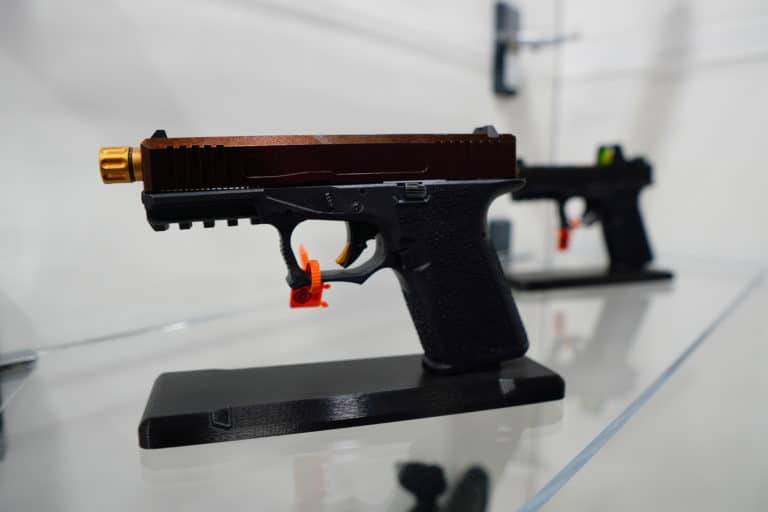The legal status of the ATF’s rules surrounding unfinished gun parts will be the next gun-related case taken up by the Supreme Court if the Department of Justice (DOJ) has its way.
The Biden Administration filed a petition for certiorari with the High Court on Wednesday in the case VanDerStok v. Garland. The petition asks the Court to overturn a Fifth Circuit Court of Appeals decision and rule that the ATF has the authority to legally redefine what constitutes a “firearm” under federal law to include unfinished gun parts.
“Under the Fifth Circuit’s interpretation, anyone could buy a kit online and assemble a fully functional gun in minutes— no background check, records, or serial number required. The result would be a flood of untraceable ghost guns into our Nation’s communities, endangering the public and thwarting law-enforcement efforts to solve violent crimes,” the petition reads. “The Court should now grant certiorari and reverse.”
The DOJ’s petition substantially increases the likelihood that the Supreme Court will agree to review the ATF’s attempt to ban so-called ghost guns. The High Court often gives the federal government deference in deciding which cases to take up, particularly in situations where the legal standing of its criminal statutes has been called into question in select parts of the country. That’s the case following Fifth Circuit’s November 2023 ruling determining that the ATF overstepped its authority, making the case a strong candidate for review.
The Supreme Court has already shown willingness to get involved in the case. The Justices twice before, in August and October, granted the DOJ’s motion for an emergency stay on district court orders blocking the ATF rule. Both times, the Court noted that rulings invalidating the ghost gun rule were stayed “pending the disposition of the appeal in the United States Court of Appeals for the Fifth Circuit and disposition of a petition for a writ of certiorari, if such a writ is timely sought.”
The case stems from a regulation crafted by the ATF at the request of President Joe Biden in August 2022. The rule redefined terms like “firearm,” “frame,” and “receiver” under the Gun Control Act of 1968 so that the agency could crack down on homemade guns lacking serial numbers.
The Biden administration has argued that unfinished gun parts kits are an “acute threat to public safety” because they can be purchased by minors and criminals by bypassing gun sales regulations. However, gun-rights advocates argue that privately making guns for personal use has always been legal and is a tradition that dates back to the country’s founding. They also argue that the ATF’s attempt to clamp down on that practice via administrative rulemaking goes beyond the powers granted to it by Congress.
A three-judge panel for the Fifth Circuit Court of Appeals mirrored that sentiment in its November 2023 decision striking down the rule.
“The agency rule at issue here flouts clear statutory text and exceeds the legislatively-imposed limits on agency authority in the name of public policy,” Judge Kurt D. Engelhardt wrote on behalf of a unanimous panel. “Because Congress has neither authorized the expansion of firearm regulation nor permitted the criminalization of previously lawful conduct, the proposed rule constitutes unlawful agency action, in direct contravention of the legislature’s will.”
The DOJ argued Wednesday that Judge Engelhardt and his fellow jurists misinterpreted the statutory basis for the rule and ignored the practical implications of not allowing ATF to have discretion over regulating firearm parts.
“The Fifth Circuit failed to meaningfully analyze the statutory text, misread the Rule, and misunderstood ATF’s longstanding practices,” DOJ wrote in its cert petition. “And the Fifth Circuit’s interpretation would frustrate the Act’s design and make it trivially easy to circumvent the central requirements of the federal firearms laws.”
Ultimately, the DOJ said that allowing the Fifth Circuit’s decision to stand would ” dramatically undermine” the Gun Control Act nationwide and urged the justices to get involved.
If granted, the case would mark the second time the Court will have taken up the question of the ATF’s authority to reinterpret federal firearms law. The Court agreed to take up the Trump administration’s bump stock ban last November and will hear oral arguments in that case later this year. How the justices’ rule on the bump stock question could ultimately impact the outcome of the ATF’s frames and receivers rule.






